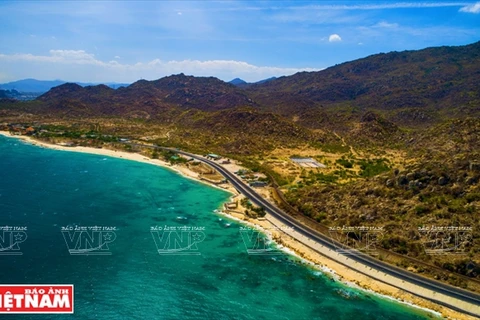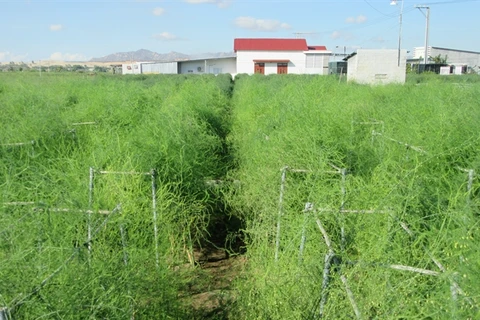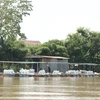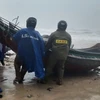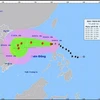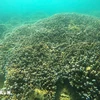Ninh Thuan (VNA) – The central province of Ninh Thuan has considered the conservation and sustainable development of marine biodiversity and the rational exploitation of marine resources as one of the priority tasks in its socio-economic development strategy, given the province's rich biodiversity with hundreds of marine species of economic and conservation value.
Ninh Thuan has a coastline of more than 105 km and over 18,000 sq.km of territorial waters. According to the latest studies by the provincial Department of Natural Resources and Environment, coral reefs and coral reef ecology are among the most prominent biodiversity components in Ninh Thuan waters. Scientists have recorded six coral reefs with an average coverage of about 42.6 percent. Coral reefs are home to many species of marine creatures, including coral reef fish with 147 species belonging to 81 genera and 32 families. Five species of seagrass are also identified which cover a total area of about 341 ha.
The province is also home to 538 fish species, including 146 pelagic species and 392 benthic species, of which 68 have high economic values. Notably, the waters of Nui Chua National Park are currently one of the few rare areas on the mainland in Vietnam where sea turtles arrive to spawn every year.
With the potential in valuable ecosystems and biodiversity, the province has paid special attention to the conservation of marine biodiversity. Over the past time, relevant agencies have cooperated with research institutes, universities, domestic and foreign organizations to implement many research projects and programmes on marine biodiversity. A programme on periodical monitoring of Ninh Thuan coral reefs has been built, and surveys were conducted on typical marine ecosystems in Ninh Hai and Thuan Nam districts. Work is also underway to restore mangrove ecosystems in Nui Chua and Dam Nai areas to protect and create a favourable environment for marine species.
Ninh Thuan also promoted communication activities to encourage sustainable fishing practice, and spent its own budget along with mobilising resources from local enterprises to release young shrimp and fish fry into the sea to revive marine resources. Since the beginning of this year, around 700,000 young shrimps have been released into the sea.
Chairman of the provincial People’s Committee Tran Quoc Nam said that in the coming time, Ninh Thuan will continue to develop mechanisms and policies to attract central and local resources for investment programmes and projects to improve the operational efficiency of marine protected areas, and improve its capacity of responding to marine environmental incidents, actively encourage people living in coastal areas to raise their awareness of the conservation and sustainable development of marine biodiversity./.
Chairman of the provincial People’s Committee Tran Quoc Nam said that in the coming time, Ninh Thuan will continue to develop mechanisms and policies to attract central and local resources for investment programmes and projects to improve the operational efficiency of marine protected areas, and improve its capacity of responding to marine environmental incidents, actively encourage people living in coastal areas to raise their awareness of the conservation and sustainable development of marine biodiversity./.
VNA



